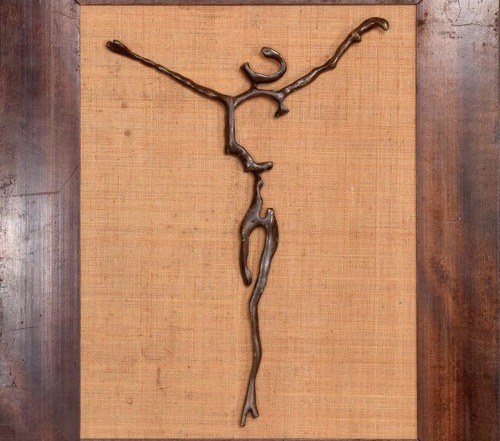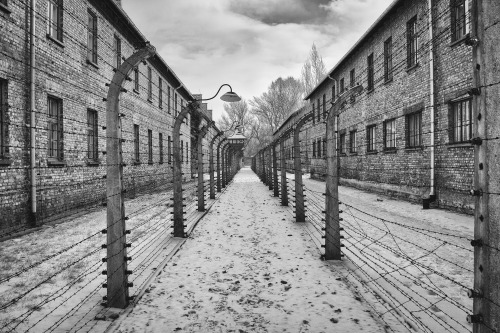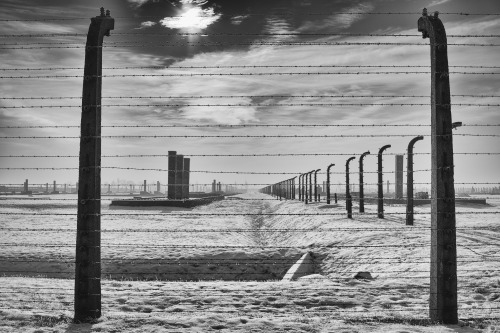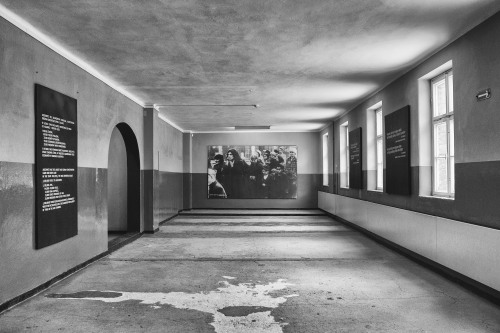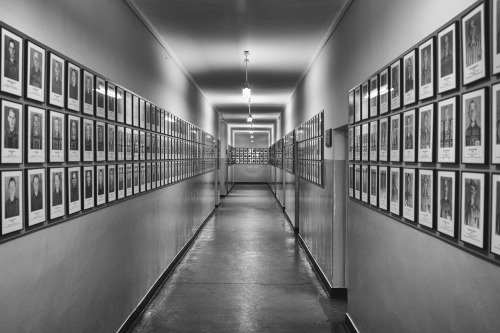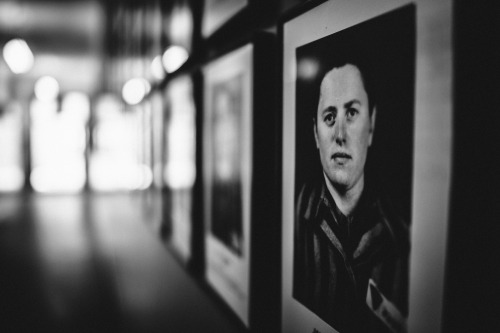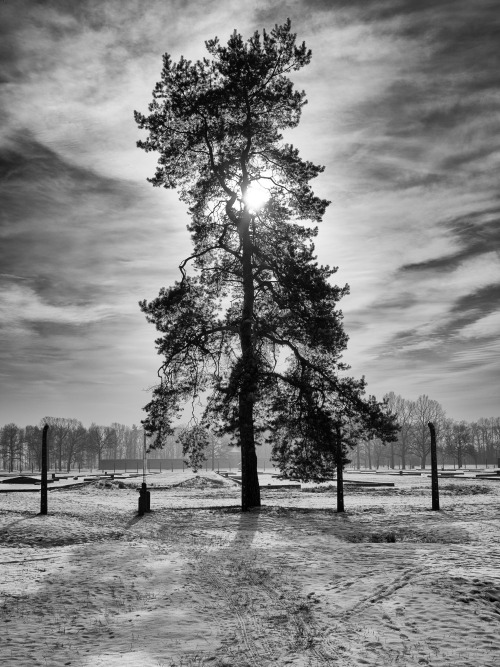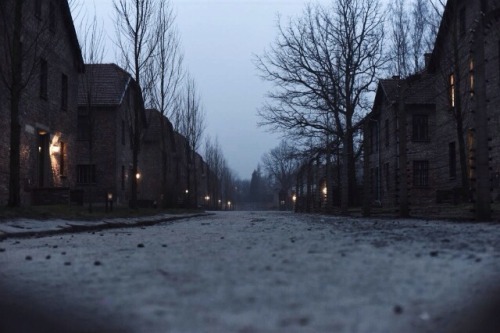#auschwitz

Never Forget.
Never Again.
so the memorial site at aushwitz was shut down today after nude protesters slaughtered a sheep, lit a fire, chained themselves to the front gate, and draped white banner saying “love” over the “arbeit macht frei” (“work makes you free”) sign. their objective is unclear……..um?? what kind of insensitive and groteque white activism is this???
WHAT THE HELL
One week earlier pope Francis visited Auschwitz-Birkenau former death camp.
Learn to forgive, not to remember the cruelty of the mankind.
Post link
“We are very calm and cheerful. Of course, so far there has been no Mass and Communion; maybe that will come later. Now we have a chance to experience a little how to live purely from within.”
~ Edith Stein, Letter Written from Westerbork transit camp, August 1942
[Auschwitz savior II, 1951 - Mathias Goeritz]
• Edith Stein (1891–1942) was a realist phenomenologist associated with the Göttingen school and later a Christian metaphysician. She was a Jew who converted to Catholicism in 1922 and was ordained a Carmelite nun in 1933. She died in Auschwitz in 1942. More: https://plato.stanford.edu/entries/stein/
• Mathias Goeritz was a German-born Mexican sculptor. He is best known for his interest in what he called “emotional architecture,” which was a belief in objects that elicited an emotional response rather than objects purely for functionality. Goeritz’s public sculptures were often large-scale and inspired by prehistoric cave paintings and monoliths. More: http://www.artnet.com/artists/mathias-goeritz/
Post link

“War can be said to become ‘total’ in at least two main senses: on the one hand, in the sense most used by social scientists, that it more and more completely incorporates the whole of social life; and on the other, in the military (Clausewitzian) sense, that it increasingly becomes an ‘absolute’ struggle of life and death for states and peoples. In reality, these are but two sides of the same process. The political-economic totalisation of war both facilitates and requires the military-technological totalisation. This is why the atomic bomb on Hiroshima, which obliterated a city and threatened an era of war as total annihilation, represents a logical conclusion to a century of industrialised warfare.” (page 38)
“A great deal has been written about the links between the post-war arms race and the economy. On the one hand, it has been suggested that the alliance of the military and the industrial sectors dependent on them constitutes a military industrial complex, which dominates and directs American society in particular. C. Wright Mills’s 1956 study of The Power Elite gave great weight to military-industrial linkages within a system of power which as a whole had increasingly been centralised by military conflict and nuclear technology. Thompson argues, even more radically, that modern societies ‘do not have military-industrial complexes - they are military-industrial complexes’. For him, ‘exterminism’ is the driving force of the entire social system. On the other hand, more specifically economic analyses were put forward to suggest that Western (and, by implication, Eastern) systems were ‘arms economies’ in which arms production provided the central dynamic of the economic system as a whole. Originally developed during the Second World War and its immediate aftermath, especially Korea, as a theory of a Permanent War Economy, this was subsequently modified as it was recognised that nuclear weapons could inhibit major wars while stimulating military expenditure which had a fundamental economic effect. So the arms economy was presented as an explanation of the post-war boom.” (page 41)
“Total war becomes less total in the sense of direct social participation at the very point at which it becomes greatly more total, indeed potentially absolute, in the military sense. Thus while in one sense it is utterly correct to see the entire global social system as conditioned by total war - in exterminist terms - much of social reality apparently contradicts this insight. The economic, social, even political and ideological links between the arms race and most social life become less direct, the more sophisticated and lethally accurate nuclear weaponry becomes. The nuclear arms race has largely been conducted out of sight of society, with states deliberately eschewing even ideological, let alone practical, mobilisation. Even in the United States, by far the most obviously militarist of Western societies, militarism and related political and nationalist ideologies are far less unequivocally dominant than they were in the ‘Cold War’ of the first decade after 1945. This has a great deal to do with the fact that the function of actual war has radically altered. War cannot be recognised unequivocally even as a possible outcome of war preparation; and war, if it came, would not heighten social mobilisation as in all previous phases, but result in the most extreme demobilisation - physical destruction of the majority of society’s members.” (pages 44, 45)
“The reasons for the development of radical politics in the first two phases of total war were mainly to do with the contradictions of military participation. Both the First and Second World Wars involved total societal mobilisation. A nuclear war, however, will mobilise society as a whole only in the sense of Auschwitz, by delivering it to mass destruction. The mobilisation process proper is transferred back into the war-preparation stage: but, as we have seen, nuclear militarism is not mass militarism in the same sense. Small professional armed forces and technologically skilled work forces in the armaments industries ‘participate’ more or less directly; the mass of society participate mainly in the sense of ideological mobilisation. Even this ideological mobilisation, as an active process, is limited to periods of relative crisis in international relations and the arms race.” (page 103)
Hannah Szenes (1921-1944) was a Jewish Hungarian resistance fighter who was parachuted behind German lines in World War 2.
The child of a Jewish family in Hungary, Szenes showed a talent for writing from a young age. She was accepted into a Protestant private school, however in spite of a ‘gifted student’ discount she still had to pay double the regular fees because she was Jewish. Combined with her awareness of the worsening situation for Jews in Hungary, this led her to join Maccabea, a Hungarian Zionist youth movement.
In 1939 Szenes traveled to the British Mandate of Palestine where she studied agriculture and wrote poetry and plays about Kibbutz life. In 1941 she joined the Jewish paramilitary force Haganah and in 1943 volunteered to join the British Special Operations Executive to train as a paratrooper. After training in Egypt she was selected to take part in an operation to infiltrate German-occupied Europe and establish links with beleaguered Jewish communities.
On March 14th 1944 Szenes was parachuted into Yugoslavia along with two men, Yoel Palgi and Peretz Goldstein. Their mission was to enter Hungary and help save Hungarian Jews from being deported to the Auschwitzconcentration camp. The team spent 3 months working with Yugoslavian partisans, during which they discovered that Hungary had been forcibly occupied by German forces in retaliation for attempting to surrender to the Allies. Faced with this new information Palgi and Goldstein decided to call off the mission. Szenes disagreed and pressed on to the Hungarian border alone, however not long after crossing she was arrested by Hungarian police.
Szenes was imprisoned and suffered a brutal interrogation by police who wanted to know the code for the radio transmitter she used to communicate with the partisans and the British. She was stripped, tied to a chair, and whipped and clubbed for 3 days. She lost several of her teeth. Yet she refused to surrender the code and so she was transferred to a Budapest prison where she continued to be tortured. Frustrated that she wouldn’t break, the guards brought in her mother, who she had not seen for 5 years, and threatened her life. Despite this Szenes still refused to give up the code and eventually her mother was released.
Szenes spent the next three months in prison but was not idle. She communicated with other prisoners using a mirror to flash signals and used large cut-out letters to spell out messages in Hebrew. She often sang to keep up the spirits of the other prisoners. However in late October she was tried for treason and on November 7th 1944 she was executed by a German firing squad.
Following the end of the war, Szenes became widely known when her diary, poetry and plays were published. She was recognised as a national heroine of Israel and in 1950 her remains were reburied in the military cemetery on Mt HerzlinJersualem.
One of the final entries in her diary contained a poem reading:
In the month of July I shall be twenty-three,
I played a number in a game,
The dice have rolled. I have lost.
Post link
Daring in concept and method, a Affinity Konar’s Mischling, novel about Josef Mengele’s horrific experiments on Auschwitz prisoners, is astonishing the literary world. Read Jewish Book Council’s review of the book and original essays by the author about her writing and research.
Post link
Des voix sous la cendre
Hangok a hamú alatt
Voices under the ash
קולות אונטער די אַש
(Zalmen Gradowski, Leib Langfus és Zalmen Lewental titkos leirásai)
[ARTE dokumentació: Sonderkommando Auschwitz-Birkenaufrançais/deutsch]
After the liberation of the Auschwitz-Birkenau extermination camp by the Red Army in January 1945, it became known that the Nazis had forced Jewish concentration camp inmates to participate in the killing of fellow inmates. Most members of the so-called Sonderkommandos were murdered on abandonment of the concentration camp to eliminate witnesses of the horror.
Only a few of them succeeded in writing down part of the incredible facts and secretly passing on their message to posterity beyond their own annihilation …
Post link
In 1935, a Nazi law legalized the `compulsory sterilization of homosexuals.’ A special section of the Gestapo dealt with them.
Of the 100,000 gay men that were arrested at least 15,000 were sent to concentration camps wearing pink triangles. The pink triangles worked in the clay pits of Sachsenhausen, the quarries of Buchenwald, they shoveled snow with their bare hands in Auschwitz & they were used as living targets at the firing range; they had the dirtiest jobs in all camps.
This Holocaust Memorial Day we should remember them too.




When I became conscious of myself again, I tried to slow my pace somewhat. But there was no way. These human waves were rolling forward and would have crushed me like an ant.
By now, I moved like a sleepwalker. I sometimes closed my eyes and it was like running while asleep. Now and then, someone kicked me violently from behind and I would wake up. The man in back of me was screaming, “Run faster. If you don’t want to move, let us pass you.” But all I had to do was close my eyes to see a whole world pass before me, to dream of another life.
The road was endless. To allow oneself to be carried by the mob, to be swept away by blind fate. When the SS were tired, they were replaced. But no one replaced us. Chilled to the bone, our throats parched, famished, out of breath, we pressed on.
We were the masters of nature, the masters of the world. We had transcended everything—death, fatigue, our natural needs. We were stronger than cold and hunger, stronger than the guns and the desire to die, doomed and rootless, nothing but numbers, we were the only men on earth.
At last, the morning star appeared in the gray sky. A hesitant light began to hover on the horizon. We were exhausted, we had lost all strength, all illusion.
The Kommandant announced that we had already covered twenty kilometers since we left. Long since, we had exceeded the limits of fatigue. Our legs moved mechanically, in spite of us, without us.
Night - Elie Wiesel
ONE DAY, when we had just returned from the warehouse, I was summoned by the block secretary:
“A-7713?”
“That’s me.”
“After your meal, you’ll go to see the dentist.”
“But … I don’t have a toothache…”
“After your meal. Without fail.”
I went to the infirmary block. Some twenty prisoners were waiting in line at the entrance. It didn’t take long to learn the reason for our summons: our gold teeth were to be extracted.
The dentist, a Jew from Czechoslovakia, had a face not unlike a death mask. When he opened his mouth, one had a ghastly vision of yellow, rotten teeth. Seated in the chair, I asked meekly:
“What are you going to do, sir?”
“I shall remove your gold crown, that’s all,” he said, clearly indifferent.
I thought of pretending to be sick:
“Couldn’t you wait a few days, sir? I don’t feel well, I have a fever…”
He wrinkled his brow, thought for a moment, and took my pulse.
“All right, son. Come back to see me when you feel better. But don’t wait for me to call you!”
I went back to see him a week later. With the same excuse: I still was not feeling better. He did not seem surprised, and I don’t know whether he believed me. Yet he most likely was pleased that I had come back on my own, as I had promised. He granted me a further delay.
A few days after my visit, the dentist’s office was shut down. He had been thrown into prison and was about to be hanged. It appeared that he had been dealing in the prisoners’ gold teeth for his own benefit. I felt no pity for him. In fact, I was pleased with what was happening to him: my gold crown was safe. It could be useful to me one day, to buy something, some bread or even time to live. At that moment in time, all that mattered to me was my daily bowl of soup, my crust of stale bread. The bread, the soup—those were my entire life. I was nothing but a body. Perhaps even less: a famished stomach. The stomach alone was measuring time.
Night - Elie Wiesel



